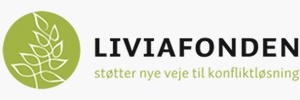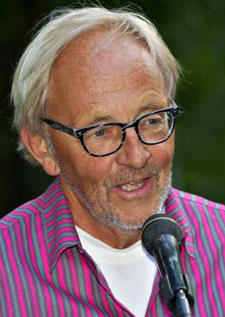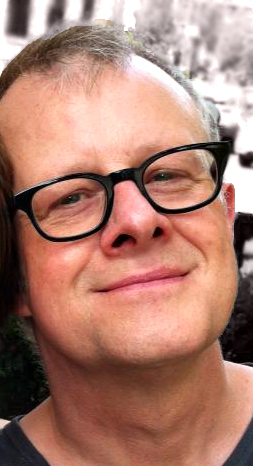Archive for the ‘Norden as region’ Category
Nominate someone for the Livia Prize for nonviolent conflict-resolution
The Livia Foundation was initiated by The Danish Centre for Conflict Resolution with an aim to enhance its efforts to directly address conflicts in societies through nonviolent interventions – in Denmark and beyond.
The name LIVIA refers to the olive twig, an ancient symbol of ‘approaching peacefully’. Also, at the end of the biblical flood, a dove returned to Noah’s Ark with the twig from an olive tree to signify ‘end of troubles’.
The Livia Foundation aims to create hope by promoting nonviolent conflict resolution in the world:
• making visible all the courageous, nonviolent efforts in evidence on all continents;
• supporting projects and individuals who demonstrate that severe social conflicts can be efficiently resolved through a wealth of ideas and dialogue;
• inspiring politicians, media, organizations and the general public to apply constructive, nonviolent approaches to conflict resolution
• creating conflict preparedness, locally and internationally Economy and organization
The LIVIA Foundation has raised app. DKK 700.000 or well over US$ 100.000. The bulk of these funds is spent on awards and other events, while DKK 250.000 is tied up as the foundation’s statutory capital in the Merkur Bank.
The capital comes from personal donations, from the author fees of the book ‘Conflict and Contact’, from foundations and from the Centre for Conflict Resolution.
The Livia Foundation is a civic, non-political, non-religious, non-profit initiative. We work to promote new ways to support creative, constructive nonviolent conflict resolution.
The foundation is headed by its Board assisted by a large number of active persons, who are particularly active around the prize awards. All are volunteers.
More about Livia and who has been awarded its Prize earlier here.
The worldwide examples of nonviolent action are admirable, but only rarely do they reach the front pages of the media.
This is where the Livia Foundation is working to make a difference:
We will make the life-affirming ideas and solutions known to a larger public, by drawing attention and giving a voice to people working within creative conflict resolution.
Else Hammerich, TFF Associate and former TFF Board member, has been in the forefront of both the Centre’s and the Livia Foundation’s establishment and TFF is proud to help promote knowledge about it and identifying the best possible candidates for the Livia Prize.
See at the end of this presentation how you may nominate someone for this prestigious Prize. Read the rest of this entry »
Norway right now – Compliance with the US
By Johan Galtung
Jondal, Hardangerakademiet, Norway, August 1, 2016
The Hardanger Academy is focused on the three UN concerns, peace-development-environment. This year’s symposium was brilliantly opened by Vandana Shiva, a gift to the world from India. She encompassed all three themes with deep insights; holistic and very dialectic in her approach, with forces and counter-forces in all her proposed solutions; with her optimistic activism and engagement. The media missed a golden opportunity to tell the Norwegian public.
She was imported for a week from India, and met with dedicated counterparts and groups in Norway. They are not very visible in public space either; but the Hardanger Academy will try to change that.
What is in public space in Norway?
A mirror image of US public space. If the US media say that Russian hacking was behind the enormous WikiLeaks revelations from the Democratic National Committee computer, so do the Norwegian media. If US media do not tell the content, so do the Norwegian media. The general rhetoric of the Clinton-Trump controversy is slavishly imitated, including the idea that Trump is an agent for Putin, and the silence about Clinton’s massive killing as Secretary of State. The behavior one would expect from a compliant client country. But there is more to it.
What is the basic concern of the Norwegian media?
Lifestyle, in short, for good–live graciously, in comfort–and for bad, the many breakdowns, suicides-homicides, divorces, alcoholism. The politics of everyday, personal, life. That in itself is welcome, however, not as a veil draped over national and global politics.
How about Norwegian artists?
With a few exceptions, they are on that line, intensely focused on personal life, often their own, in the smallest detail. No artists write about Norwegian military snipers killing massively in Afghanistan, and the air force by bombing in Libya for the USA–some even presented as useful training exercises. Read the rest of this entry »
Shadows of Doom
By Gunnar Westberg
During the years since the end of the Cold War, Peter Handberg – a writer and translator – has travelled many times in the Baltic states, Estonia, Latvia and Lithuania. He has visited many sites where nuclear weapons were kept at the time, ready to destroy the world.
Handberg has also spoken to military officers who once watched over these instruments of Armageddon. He has written an important book on the subject, Undergångens skuggor (Shadows of Doom). The book is not translated but a documentary film is planned.
He has just led a group of people from Sweden to some of these bases, abandoned since 1987. We were about ten physicians from the Swedish section of International Physicians for the Prevention of Nuclear War (IPPNW) and ten others – historians, people with an interest in the Baltic states, etc..
I learnt three important facts, from the book and be visiting these sites:
1. The size of the Soviet nuclear complex in these small Baltic states was enormous; there were at least 35 bases.
2. The officers who watched over the missiles were, especially in 1983, convinced that an American attack would come and they expected to launch their missiles.
3. There were at some of these bases, in the sixties but also much later, short distance missiles with a range of not more than 600 km, enough to reach Southern Finland and Eastern Sweden only. They carried a large number of bombs, mostly of 100 kt effect, or about six Hiroshima bombs.
The reason “neutral” Sweden was targeted was that a US attack with bomb planes carrying nuclear weapons was expected to come also over Sweden, possibly using Swedish airfields.
Maybe that was correct: Sweden would have been used as a platform for an American nuclear attack on the Soviet Union. Such a scenario is described by Thomas Reed, once head of US Air Force, in his book At the Abyss.
Reed was a US defence analyst who in the eighties participated in the selection of enemy targets in the strategic plane called SIOP.
I can not avoid comparing this piece of history to the situation today: Sweden’s government is moving ever closer to NATO and has – through the Host Country Agreement – prepared for NATO bases in the country and thereby – potentially at least – for an attack to be carried out by NATO from Swedish territory.
We Swedes are making ourselves a target.
TFF PressInfo #381: Much stronger than during the First Cold War. Why is NATO so irrational?
By Jan Oberg
The third article in the TFF series on The New Cold War
We are witnessing a remarkable increase in tension between the US/NATO and Russia these years – and it can not only be explained by whatever we choose to think happened in Ukraine and Crimea. We find a totally new effort on both sides to use social and other media to tell how dangerous “they” are to “us”. There is a clear tendency to “fearology” – to instill fear in the citizens on both sides about the capabilities and intentions of the other side.
We find deeply concerned articles about the possibility of war between the two parties – a quarter of a century after the Berlin Wall tumbled.
Why is the new tension rising in Europe between US/NATO and Russia so manifestly dangerous and – with the exception of the Cuban Missile Crisis worse than during the First Cold War?
On a series of indicators, the political Western world – US/NATO/EU and Christian (Orthodox, Protestant, Catholic with sects) – is becoming weak relative to other players in the global society.
The West has engaged in a series of wars that turned into very costly fiascos – from what followed from Sykes-Picot which turned 100 in May 2016 over Vietnam to the destruction of Afghanistan, Iraq, Libya and Syria.
The West is still the largest economic bloc and the 28 NATO members cover about 70% of the world’s mind-boggling US $ 1700 billion military expenditures. Africa as a continent, BRICS countries – China in particular – are making progress, also in fields where the West has failed; for instance, China has lifted 400 million Chinese out of poverty in a couple of decades. The wealthy West has done nothing of the sort over centuries but produced a grotesquely, perversely unequal income distribution.
Take a look at the graphs linked to this summary page from SIPRI. They will tell you how world military expenditures in constant prices have risen since 1996 even though the Warsaw Pact had been dissolved. In 2015, the US alone stands for 36% of the world’s military expenditures, China for 13% and Russia for4%.
President Obama stated recently that the US military is stronger than the next 8 – here is what he said in his State of the Union Address on January 12th, 2016:
“I told you earlier all the talk of America’s economic decline is political hot air. Well, so is all the rhetoric you hear about our enemies getting stronger and America getting weaker,” Obama said in his last annual State of the Union address Jan. 12, 2016. “Let me tell you something: The United States of America is the most powerful nation on Earth. Period. Period. It’s not even close. It’s not even close. We spend more on our military than the next eight nations combined.”
In spite of these fact that prove the overwhelming and increasing superiority of today’s NATO, we see a constantly increasing propaganda coming out of NATO circles to the effect that NATO is getting weaker and that Russia a formidable, unreliable power just waiting for the next opportunity to invade some country in the West.
Let’s take a look back in time. Read the rest of this entry »
Kärnvapen och andra vapen
Av Erni & Ola Friholt
Margot Wallström har utropat en feministisk utrikespolitik för Sverige. Inom den tecknades nyss ett värdlandsavtal med Nato, världens utan jämförelse starkaste militärallians. Avtalet permanentar flera gånger årligen återkommande militärmanövrer i stora delar av vårt lands luftrum, på landytan och i territorialvattnen. Sverige bekostar nödvändiga infrastrukturan-läggningar.
Militärmanövrerna samtrimmar svensk militär med Nato. Den underförstådda motståndaren är Ryssland, ständigt utpekat som aggressivt och hotfullt. Med den förklaringen flyttar Nato ständigt fram sina positioner mot Rysslands gränser. Eftersom Ryssland känner sig hotat utvecklas ett spel som leder till ökad spänning och krigsrisk, vilket i sin tur ger anledning att upprusta båda sidor.
Kapprustningen tar resurser från det civila samhället och skapar oro även där. Närmast ska det torkdrabbade Gotland utrustas med nya anläggningar, vapen och manskap. Kapprustning med ständigt nya vapen har bara ett slut: fattigdom och krig.
I denna situation önskar Sveriges regering förhandla fram ett förbud mot kärnvapen, det vapen som kärnvapenmakternas säkerhetstänkande ytterst vilar på och är det sista de skulle avstå från. Detta erinrar om myten om Sisyfos, mannen som dömts att baxa ett stenblock uppför en sluttning och som varje gång han nått toppen får se blocket rulla ner igen till utgångspunkten.
Den svenska regeringens feministiska Sisyfosarbete bortser ihärdigt ifrån att det är alla de andra vapnen som startar utarmande kapprustning och krigshot. De så kallade konventionella vapnen skördar dagligen och stundligen dödsoffer och skadade. Hur befängt det än kan låta, måste väl illusionen om säkerhet och fred genom de andra vapnen ha lockat till värdlandsavtalet med Nato?
Regeringen väljer att betala och samarbeta med ”de stora grabbarna”, de som i Serbien, Afghanistan, Irak, Libyen, Syrien, Jemen och Somalia med militära konventionella ”insatser” dödat över två miljoner människor på femton år och skadat ännu fler.
Deras svar på konflikter är endast ett: bombningar till underkastelse.
Därför får vi som svar ett evigt s k terrorhot.
Om den feministiska utrikespolitiken vore allvarligt menad, vore den givna politiken nedrustning, samtal och utbyte med den utpekade fienden, allt för avspänning i enlighet med Palmes kommission om gemensam säkerhet, alltså även motsidans säkerhet, och en verklig alliansfrihet.
Nu går färden åt motsatt håll, med kontraproduktiv handelsbojkott och anslutning till Natos våldsdoktrin.
Du lever farligt, Margot!
ERNI & OLA FRIHOLT
Nordic family meets with Big Brother Obama in his nice White House
By Gunnar Westberg
Very pleasant meeting. We all agreed on everything. We follow you, Big Brother, in all your ventures, we are so happy you like us.
Reports and family pictures have appeared in media from a dinner with 350 guests. Nice laudatory speeches, not a disturbing critical word.
There is a final document on everything that was agreed, already beforehand.
I recommend no one to read the paper, you can’t, it is such a soporific (= tending to induce drowsiness or sleep).
No journalist has so far given an overview, they fell asleep too, I guess. The section on Environment and on Energy seems good, but nothing new. The failure of the USA in energy conservation is not allowed to disturb in this Feel good report.
The section on Defence and Security is, however, very depressing. Read the rest of this entry »
Udsigten fra månen…
Af Claus Kold
Fra Månen kan man ikke se Danmark, lige meget hvor godt man kigger. Det kan man ikke, fordi Danmark er en kulturlig konstruktion, som er inde i danskernes hoveder, og som derfor ikke kan ses. Man kan heller ikke se Rusland, USA eller Indien.
Disse stater er nemlig også kun inde i hovederne på de mennesker, der tilfældigvis er født og opvokset i det, de har valgt at kalde fx Israel. Danmark er m.a.o. en tilfældighed. Det kunne lige så godt ikke eksistere, eller ligge et andet sted eller danskerne kunne tale et andet sprog, som de godt nok ville kalde dansk, men som ikke lød dansk – for os, de rigtige danskere.
Stater og statssystemer har ikke altid eksisteret, og op gennem tiden har de, der eksisterede, haft meget forskellige form. De har været religiøse, familieeje, enemandsvælder, étpartistater – i dag er det dominerende ideal territorialt afgrænsede demokratiske stater, hvor befolkningerne helt principielt skal inddrages i beslutningsprocesserne. De forskellige demokratiske stater, der udgør hovedparten af det internationale samfund i dag er dog langt fra ens, og det kan derfor være svært for staterne at forstå hinandens motiver og handlinger.
Til det tilfældige system af tilfældige stater hører lige så tilfældigt menneskeskabte systemer som politik, territorie, økonomi, sikkerheds- og forsvarspolitik, konkurrence, etc. Systemer som kunne være anderledes, men som i dag er bundet til sine egne logikker, som de er blinde for og derfor ikke sætter sig ud over. Systemer kan typisk ikke se og tænke ud over sig selv. Blindheden er farlig, for der tegner sig i stigende grad et billede af at disse tilfældige menneskelige systemer står i kviksand og kæmper med hinanden, uden at opdage at de synker dybere og dybere i, ligesom det heller ikke opdages at konflikterne ikke er nødvendige men systemskabte, kulturlige. Der er nok af globaliserede udfordringer: global opvarming, udryddelse af plante- og dyrearter, krige, terror og flygtninge.
Det statslige system, vi lever med i dag, blev til under helt andre befolkningsstørrelser, livs- og forbrugsformer, økonomier og teknologier end dem, der dominerer i dag. Overfor de globale udfordringer er disse stater på samme tid for store til hverdagens små problemer og for små til de globale udfordringer. I deres forsøg på at forholde sig til globale udfordringer, betjener politikere sig således af forældede instrumenter, og forsøgene på at forholde sig til de globale problemer falder tilbage på politikerne, der fremstår som utroværdige, som musikerne på Titanics stadig mere hældende dæk. Read the rest of this entry »
TFF PressInfo # 367: Will the EU become a criminal union tomorrow?
By Jan Oberg
The EUropean Union – a criminal? The EU that has peace as it’s top goal and received Nobel’s Peace Prize? The EU with Schengen and Dublin? The EU with “European” values, humanism and mission civilisatrice that tells others how to live in accordance with international law and in respect for human rights?
We live in times where little shall surprise us anymore. The answer to the question – will EU become a criminal in international law terms? – will be answered on March 17 and 18 when the EU Council meets to decide whether or not to carry through the agreement with Turkey about how to handle refugees.
Amnesty International knows what it is all about. AI uses words such as “alarmingly shortsighted”, “inhumane”, “dehumanising”, “moral and legally flawed” and “EU and Turkish leaders have today sunk to a new low, effectively horse trading away the rights and dignity of some of the world’s most vulnerable people.”
And “By no stretch of imagination can Turkey be considered a ‘safe third country’ that the EU can cosily outsource its obligations to,” says Iverna McGowan, Head of Amnesty International’s European Institutions Office.
When Amnesty International expresses itself this way, we should listen very very carefully. I do and I’ve signed Amnesty’s Open Letter to Swedish prime minister Löfvén protesting that Sweden too may join this inhuman and law-violating agreement with Turkey. Hurry up, it is tomorrow!
Behind every refugee stands an arms trade, stands militarism. Read the rest of this entry »
TFF PressInfo # 365: Denmark to attack in Syria – too
By Jan Oberg
Something is rotten in the State of Denmark and the world will increasingly see it. It’s an unpleasant combination of Islamophobia, militarism and a peculiar ethical and intellectual self-destructive obedience to US/NATO all wrapped up in a pseudo-humanitarian flag.
It’s important that intellectuals criticise the policies of their native country and not only and politically correctly criticise that of others. In the case of Danish foreign and security policy it is fairly easy to do so provided you are supported neither by that country’s state nor its corporations.
Denmark to be aggressor in Syria – too
On March 4, 2016 a large majority of Danish political parties agreed to send F16s and special forces to Syria. The decision is likely to soon be confirmed by the Danish parliament.
The most important decision any government can take is the one to go to war. But that sort of thing is now routine in H.C. Andersen’s anything but idyllic rogue state. When the Danish MPs decided that Denmark should bomb in Libya an MP told me that they did so on the basis of 1,5 A4 pages memo drafted by the Ministry of Foreign Affairs.
So here Denmark is off again, this time to Syria. It’s the 6th time – Serbia in 1999, Afghanistan 10/7 2001, Iraq occupation power 2003-2007 – under non-convicted war criminal prime minister Anders Fogh Rasmussen who was rewarded by an academic title in the U.S. and then kicked upwards to the post of NATO’s S-G and in which capacity he took responsibility (without any later regret later for that or Iraq) for the pulverisation of Libya way beyond the UN mandate; then a second time in 2014-15 in Iraq bombing against ISIS/Daesh. And now Syria.
All these wars have been exemplary political and moral fiascos – if not deliberate killing missions for strategic and naked power reasons.
In none of these conflicts has Denmark that boasts an active foreign policy taken any constructive initiatives of the type that is needed – mediation, consultation, negotiations, large-scale humanitarian aid, violence-prevention, reconciliation or presented any innovative thoughts, peace plans or similar.
In no case has it argued for a large international peace-keeping presence, e.g. UN and/or regional organisations with predominantly civilian elements. And in no case has it dared criticise U.S. foreign policy in even the mildest of words.
Denmark’s humanitarianism flies F16
Prime minister Løkke Rasmussen’s argument for aggression on Syria now Read the rest of this entry »
TFF PressInfo # 360: Sweden, Denmark and refugees – still hope? Part 4/4
By Jan Oberg
Article 3/4 – TFF PressInfo # 359
Sweden
Permit a digression to neighbouring Sweden.
Sweden has – shamefully – not only closed its borders for people without valid documents, scrapped the right to asylum embedded in the Human Rights Declaration. It has declared (January 28, 2016) that it intends to deport 60.000-80.000 refugees already inside Sweden.
It was Sweden’s ambassador, the courageous Harald Edelstam, who in 1973 stood at the stadium in Santiago after the Pinochet coup and murder of president Allende and told thousands that they would always be welcome in Sweden. Thousands came and made a good life in Sweden. (There were 90 Chileans living in Sweden before the coup, today over 40,000). A small internationalist country took humanitarian leadership and we could all be proud.
But we can’t take that many people now, I hear many say.
The head of the Swedish Association of Local Authorities and Region (SKL) has stated that 40-50 municipalities are facing crisis in Sweden but that, significantly, 200-220 municipalities “say they can do more.”
But then what about the country’s security and stability? The risk of social disorder, criminality, hatred?
Of course that is a risk. But that is an old one – xenophobia and racism has been around for long in Sweden, however less visible at the surface. An enlightened government’s response should be to serve as a role model and combat racism, Islamophobia in particular – not to combat and deport refugees.
Sweden’s new overall refugee-repelling strategy is a deplorable bending down for the worst forces in society instead of mobilising a demonstratively humanitarian and visionary policy for the common good – good for Sweden and good for Europe. If you behave like Denmark and Sweden you lose your goodwill and certainly every chance to influence or take leadership among other EU countries.
Where there is a will there is a way. But it also requires a little creativity.
The Swedish government lacks the will. Like Denmark – albeit in different ways.
Are we moving from democracy towards some kind of kakistocracy – i.e.“government by the worst, least qualified or most unprincipled citizens”?
New Danish fighter planes and reduced development assistance
Back to Denmark and one more piquant aspect. Read the rest of this entry »






